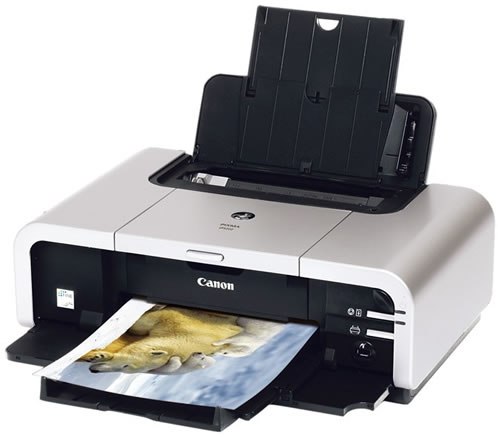Types of Printers
Dot-Matrix Printer
Dot-Matrix printer produces a quite similar letter-quality type. It uses ribbon for the ink. It has advantages of low-priced, has a low maintenance cost, low-priced ink costs, reliable and durable. But on the other hand, it has limited color printing, noisy sound that may distract users, low printing speed and has also a low resolution.

Inkjet Printers
Inkjet printer is the most common used at home and it has also a good resolution. Inkjet printers use ink cartridges for printing. They are low cost, fast, quieter if compared to dot-matrix printers and require less space to put. However, the ink cartridges are yet expensive, it may cause a mess when the ink bleeds and less quick than laser printers.

Laser Printers
Laser printers are commonly used to print in a large amount of printings. They are known as the fastest or quickest printers compared to others and make use of Toner Cartridges for printing. This kind of printer is very efficient, it produces less sound, a good quality of printing and relatively a light weight. But then, due to the advantages, laser printers are expensive and known to be quite dangerous because of the ozone that is produced. It is even said that laser printers can damage lungs like how cigarettes do.
3D Printers
3D printers are the newest type of printer. They create a 3D object by using plastic or nylon thread. The merits of 3D printers are affordable price of printing, low production cost and eco-friendly as they only have a very minimum amount of waste. The demerits are the limitation of the raw material needed and dangerous printing weapons that may harm our body.

Health Risks
Below are the possible health issues that are created by printers and some tips to prevent.
Ozone
Ozone is commonly found in photocopiers and laser printers. They may affect our health through our respiratory system and eyes. Ozone is also produced by industrial activities that involve UV radiations.
Respiratory Health Risks
Respiratory health risks such as asthma may also occur as the result of the use of printers. This may occur especially in laser printers which increase the concentrations of styrene (hazardous chemical that affect the eyes and skin when inhaled) and xylenes (flammable compounds). Inhaling the ultrafine particles produced by printers results from respiratory irritations to more deadly illnesses such as cancer.
Tips
A Ventilated Area
Ensure that you prepare a ventilated area for your printer so the dust created will not affect your health. Regulating air qualities is also one way to prevent.
Be Aware when Changing Cartridges
Be very aware if you are changing the ink cartridges for printers especially if you have asthma or any other respiratory illness. Changing cartridges may cause respiratory problems or may worsen your problems. Cartridges may contain carbon black (a dust that possibly harm humans' health that is found in toner ink), overheating cartridges that may burn your skin or again, ozone dangers.
References:
http://www.escotal.com/printer.html
http://www.engineersgarage.com/articles/printers-types-working?page=4
.http://blog.comboink.com/2010/12/advantages-and-disadvantages-of-dot.html
http://nclarion.weebly.com/advantage-and-disadvantage-of-inkjet-printers.html
http://industrialinkjetprinter.wordpress.com/2012/12/03/advantages-and-disadvantages-of-inkjet-printers/
http://laserprinterwirelesss.blogspot.com/2012/04/advantages-and-disadvantages-of-laser.html
http://www.buzzle.com/articles/advantages-and-disadvantages-of-3d-printing-technology.html
http://3ddesktopprinting.blogspot.com/p/what-are-some-advantages-of-3d-printing.html
http://news.bbc.co.uk/2/hi/asia-pacific/6923915.stm
http://smallbusiness.chron.com/dangers-toner-ink-exposure-55298.html
Thus, those are some types of printers, printer issues and a bit of tips to handle. I hope this information will be useful for you, readers. Thank you!
Please check more details on:
ReplyDeletehttps://printercart.net/advantages-and-disadvantages-of-printers/